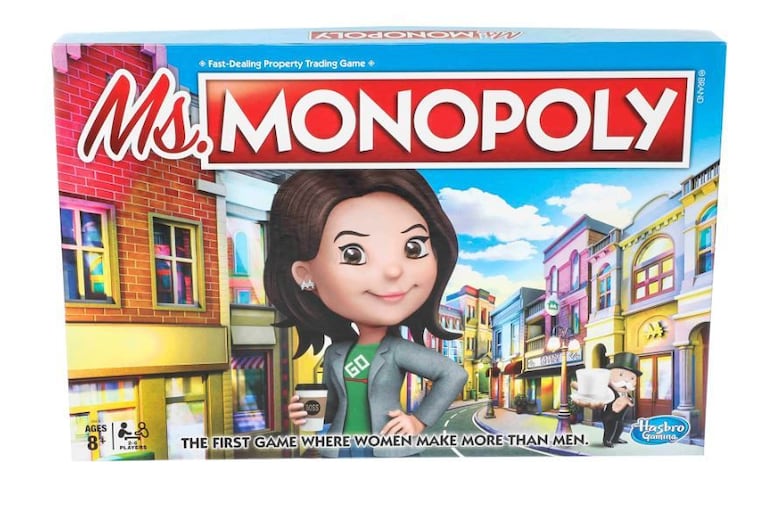‘Ms. Monopoly’ celebrates female trailblazers, except the one who created Monopoly
Charles Darrow, a Philadelphia salesman, sold it off as his "brainchild," making millions.

Hasbro this week created Ms. Monopoly, a new female-centric version of its flagship board game that allows female players to make more money than men, and features Mr. Monopoly’s niece, a Silicon Valley-type investor woman, on its box. It was created to inspire young girls and properly credit the women who invented everything from WiFi to chocolate chip cookies, solar heating to modern shapewear.
But some critics say they forgot an important one: the woman who invented Monopoly.
For decades, lore had it that Germantown native and unemployed heating engineer Charles Darrow created in the 1930s the original Monopoly game, using a piece of linoleum as the board and parts of his wife’s charm bracelet as the game pieces. He sold it to Parker Brothers in 1935, and to this day, a Hasbro spokesperson said the company credits Darrow as the inventor of “the Monopoly game as we know it.”
» READ MORE: New ‘Monopoly for Millennials’ mocks a generation and highlights a rift
But Darrow’s story is only partially true. Author Philip Orbanes, in a 1988 book about Parker Brothers called the Monopoly Companion, traced the game to a feminist Quaker from Washington, named Elizabeth Magie, who patented a board game called the Landlord’s Game in 1904. Her goal was to educate people about capitalist greed and spread the ideals of Henry George, an economist who believed the government should finance all its projects on the proceeds of a single tax.
While that’s different from what Monopoly ended up being — really, a celebration of capitalism — Magie’s game featured railroads, edges of the board marked as properties, and a corner marked “jail.”
Her game started to spread by word of mouth, and college students in the Philadelphia region began to play with homemade versions. By the 1920s, folks started just calling the game “Monopoly,” according to Orbanes. Magie reportedly tried to sell the game to Parker Brothers in 1924, to no avail.
In 1929, a schoolteacher introduced the game to friends in Atlantic City, and they created a version with Atlantic City street names. They shared it with a Philadelphia hotel manager, who then passed on the rules and a board to Darrow. He then sold it to Parker Brothers, claiming it as his “brainchild.” At some point, Parker Brothers paid Magie $500 for the rights to the adaptation of her game.
Darrow died a Bucks County millionaire in 1967.
In 1957, former Parker Brothers president Robert B.M. Barton acknowledged Magie’s game came first and wrote in a letter “it does not make very much difference to us who invented either one of the games,” which was included as evidence in a 1982 Supreme Court case about a Monopoly competitor.
Hasbro spokesperson Kristina Timmins pointed out Wednesday that though the company still credits Darrow with the invention, it does mention Magie in its new Ms. Monopoly game. On a list of inventions by women included as an insert with the game, there’s a small blurb: “Elizabeth Magie — a writer, artist, inventor, and feminist — was one of the pioneers of land-grabbing games! In 1904, she received a patent for the Landlord’s Game, which was meant to educate people about the dangers of wealth concentration.”
Besides the sizable contingent of people who want the company to properly credit Magie, plenty of others have taken issue with the entire premise of the game, which Hasbro has described as “the first-ever game where women make more than men.”
The game is to hit shelves within the next few weeks.